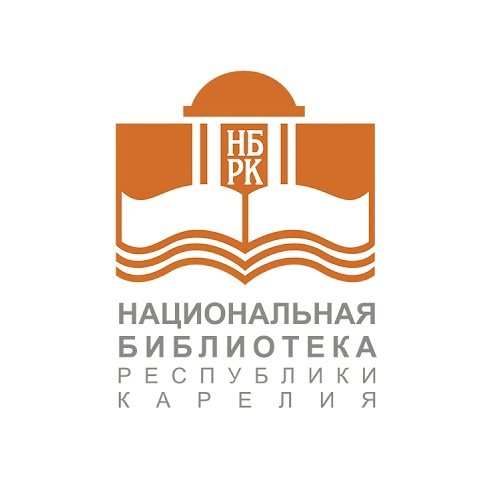Aktobe Regional Universal Scientific Library named after S. Baishev is one of the oldest cultural institutions of the region, which traces its history back to 1896 - the time of the creation of the first public library in our city. This fact of the cultural life of the city of Aktobe was written in the "Turgay newspaper" for January 5, 1896 (according to the old style). The library had its own Charter, which served as a working document of the library.
The society of burghers of the city formed an initial capital of 300 rubles from the donation of citizens, which was then spent on the purchase of a book fund and the simplest equipment for the library. The city council has assumed the obligation to allocate 50 rubles annually for the maintenance of the library. The initiative circle of the local intelligentsia took over all the worries about the arrangement and organization of the library.
The library's fund was small and consisted mainly of books of "easy" reading. There were no books in the Kazakh language at all. The funds allocated by the city council for the maintenance of the library were constantly not enough, it existed mainly on voluntary donations from citizens. The service of readers was paid and therefore only a relatively small part of the citizens used it.However, today it is known that the library's fund was also replenished by transferring books from private libraries of citizens. In the fund of rare books of the Aktobe regional Universal Scientific Library named after S. Baishev, books with facsimile seals characteristic of the beginning of the XX century have been preserved.
For example, we can see books with such seals, on which it is possible to read the name of the donor "Taran Mikhail Semyonovich". He donated to the library a collection of works by N. M. Karamzin "History of the Russian State" in 1892, which was published as an appendix to the magazine"North". Vasily Ivanovich Moshensky, the city elder, attached great importance to the development of the library. Vasily Ivanovich Moshensky was the city headman from 1909 to 1918. He completed only a course of the 2nd class of the Russian-Kazakh school, founded in 1884 in Aktobe. We know about him that he was the first settler who learned and spoke Kazakh fluently. On his initiative, the "Aktobe City Bulletin" began to be published in the city, which was a significant help for the city library, because it brought news and many other interesting facts to readers more mobile than the "central newspapers". Under V. I. Moshensky, the library's fund began to be replenished with books published as appendices to the Moscow magazines "Niva" and "Sever". For these publications were relatively inexpensive and the most popular books in those years were printed as appendices. It is impossible not to mention another name-Arseny Masokhin, who, like Altynsarin, was a pupil of Professor Ilminsky I. Arseny was a teacher who had a spiritual title. He also devoted a lot of time to libraries, but tried to make the citizens who were also his parishioners read decent literature. In the history of our city, Masokhin A. he also remained as the first buyer of the first issues of the Aktobe City Bulletin, he served as a prototype for the creation of the monument" A regular reader of the newspaper "Range", opened in 2006 in our city.
The library's fund was small, but the library's contribution to the development and formation of the city's culture was important. After the revolution-in 1920, the Aktobe city (provincial) library was formed on the basis of this library. According to the newspaper "Kirghiz Steppe", the body of the Aktobe Gubernatorial Party Committee and the Gubernatorial Executive Committee of August 31, 1922, in 1922, the library received the status of the Central City Library of the Gubernatorial Executive Committee. Information about the staff of the central city library has been preserved. It consisted of only 4 people: head Liguchevskaya O., librarian Blaginina, responsible for the artistic part Sayfullin H., responsible for the inventory Peregudov N. A.
The library's book collection was small and amounted to about 5 thousand copies. There were still not enough books, especially in the Kazakh language. Interesting information has been preserved about the fact that on August 25, 1921, the already mentioned library worker Seifullin H. I went on a business trip to the city of Orenburg to collect books on the theater for staging Muslim plays. The library staff took an active part in the cult service of soldiers and commanders of the Red Army during the battles on the Aktobe Front.
On March 10, 1932, the Aktobe region was formed, and the Aktobe Regional library was founded on the basis of the central city library, but until 1934 it actually continued to perform the functions of the city library. This is evidenced by an interesting document "The Work plan of the Aktobe Central Library for 1934". Unfortunately, the document does not have a signature. At that time, children's and Tatar-Kazakh departments were formed in the library and directions for improving their work were determined. In 1934, the library was used by 1,200 readers and the goal was to bring their number to 1,500 people by the end of the year.
By the beginning of the Great Patriotic War in 1940, there were already 33599 books in the library. The number of readers was 4,975 people. The book output for this year was 39,509 copies. In 1941, the library was replenished with periodicals, as evidenced by the form of the reader Svetlichny Yu.M., who in December 1941 took the magazines "Ogonyok", "Crocodile", "Smena", "Technique of Youth", "Around the World"from the library. A number of documents that have been preserved since those years indicate that the library continued to work in full during the war years. And in 1942, the library staff performed official business trips. This is evidenced by the official note of the methodologist of the regional library L. Yakusheva, who performed a business trip to the Temir district library.
In the post-war years, the library was headed by Anna Kozhukhova, later an honored librarian of the Kazakh SSR.
The first decade after the war was very difficult for the regional library, only in the second half of the 50s there was a qualitative change in the work of the Aktobe Regional Library.
There was a change of personnel, Vera Mikhailovna Shuvyakova began working as the director of the library during these years, in those years she was the second librarian in the city who had a higher special education.
In 1956, the fund of the regional library already numbered 83,993 copies of books. During the year, the library acquired 5233 copies of new books. The number of readers was 4036 people. The number of book releases was 77453. New directions of library work have appeared. One-year courses of library apprenticeship worked at the regional library. The library received one of the first cars, on the basis of which the so-called "Library - car" began to work-one of the new departments of the regional library. The main task of the department was to work with readers at their place of work. Book distribution points were opened at enterprises, workshops, and production sites. According to the report for 1956, there were 50 of them. The first head of the "library-car" was Omarova Rakhima Asavkhatovna.
In those years, the library had only 6 departments: methodological department, reference department, department of agricultural literature, subscription, reading room, book storage department. The 70s of the XX century were characterized by significant changes in the library business - there was a process of centralization, the transition to a new library classification (BBK) was carried out. During these years, Tarlycheva Praskovya Ivanovna and Medinskaya Evgeniya Alekseevna worked as directors of the library. The library's fund continued to grow and there was a need to form new departments that should most fully meet the interests of readers of that time.
In the 90s of the XX century, when the optimization of library work was carried out and the economic system of the state was being rebuilt, Director Kalekenova Bazargul Alievna began automating the library: the RABIS program was purchased, which is currently the main computer program, thanks to which the entire library works.
There were also changes in the name of the library. By the Decree of the Government of the Republic of Kazakhstan dated September 22, 1999 (Annex to the Decree of the Government of the Republic of Kazakhstan No. 1436), the Aktobe Regional Universal Scientific Library was named after S. Baishev. The documents available in the fund can be provided to any resident of the city, without restrictions in citizenship, education or social status.
From 2006 to 2011, the library was headed by Irina Magay. Under her leadership, the work on library automation that was started earlier was continued, office equipment necessary for further improving the service of library users was purchased. In 2006, the Library Capital was held.
In 2012, Amantai Utegenov worked as the director of the regional universal scientific library named after S. Baishev. Under his leadership, the literary lounge "Kalamger"was opened in the library.
In 2012-2018, Zhumagul Nesibeli worked as the director of the Aktobe Regional Universal Scientific Library named after S. Baishev by appointment of the regional Department of Culture.
Since 2019, the director of the Aktobe regional Universal Scientific Library named after S. Baishev is Koshabayeva Bakhtli.
XXI century-Aktobe Regional Universal Scientific Library named after S. Baishev meets with great hopes and faith in the further development of such a socially necessary institution as the library. The Aktobe regional Universal Scientific Library named after S. Baishev is the largest book depository of the Aktobe region, the fund of which has more than 350 thousand copies of books.





.png)










